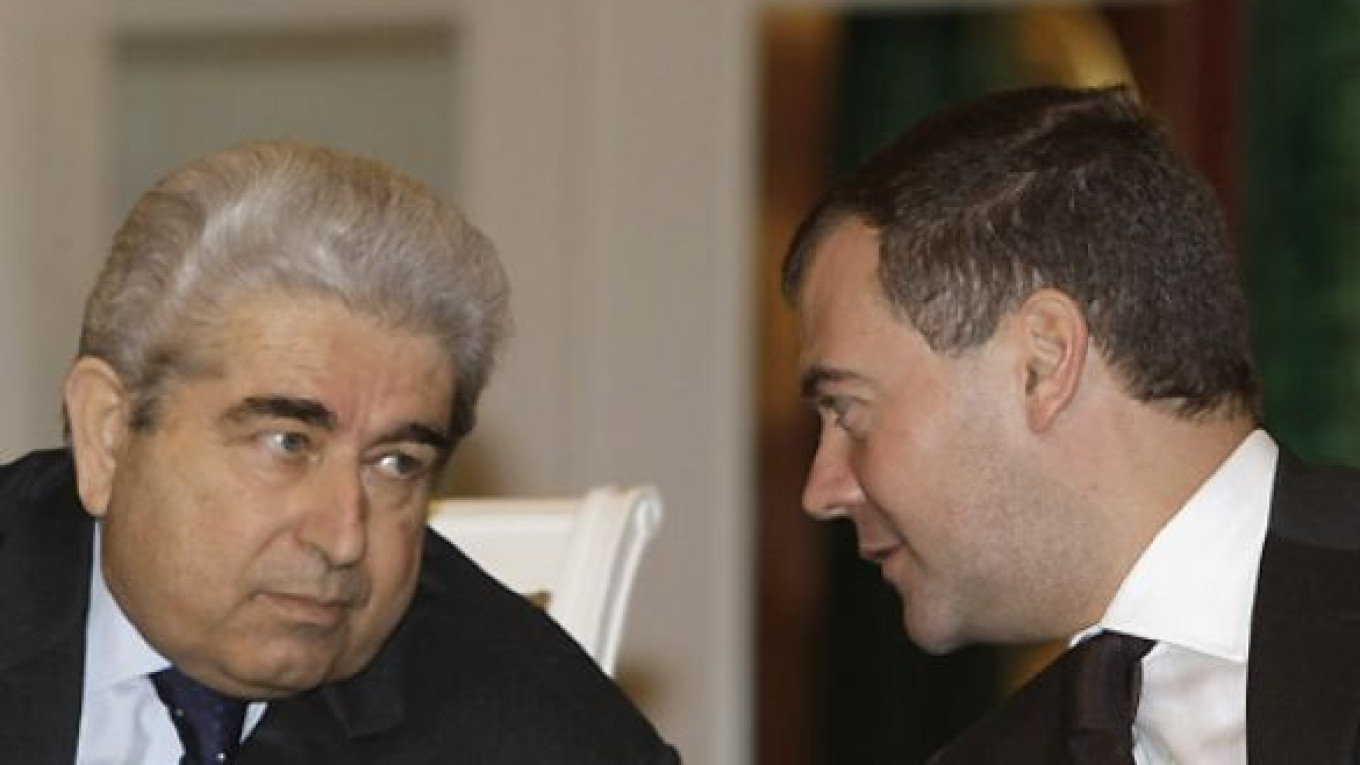Cyprus is hoping for a 5 billion euro ($6.1 billion) bailout package from Russia, an aide to the country’s leader said the day after President Vladimir Putin spoke to his counterpart on the Mediterranean island.
Unable to raise debt on international capital markets and heavily exposed to the financial woes of Greece, which is at the heart of the eurozone’s debt crisis, Cyprus also sees enormous volumes of transit money channelled through offshore companies set up for Russian businesses.
Cyprus is looking forward to a positive decision from Moscow regarding its appeal for aid, said Christos Christofides, director of the Cypriot president’s executive office, RIA-Novosti reported Wednesday.
President Demetris Christofias, a Soviet-educated Russian speaker, held a telephone conversation with Putin on Monday, according to a statement on the Kremlin’s website. Cyprus received 2.5 billion euros of credit from Russia last year.
The troubled Mediterranean island has also requested assistance from the eurozone financial decision-making “troika” of the International Monetary Fund, the European Central Bank and the European Commission.
Russia’s motives in extending such a huge credit line to Cyprus were dubious, said Anna Bodrova, an analyst at InvestCafe. They could include a desire to be involved in gas exploration projects or preserve the stability of a country that sees big money flows from large Russian companies, she added.
Cyprus is one of the biggest foreign investors in Russia because of the cash that is temporarily relocated to the island by Russian firms before being repatriated. There is a direct relationship between the oil price and the value of nonresident deposits in Cyprus.
Negotiations on the potential Russian bailout have been heating up in recent weeks, with a delegation from Nicosia, including the country’s foreign minister, visiting Moscow last week.
“Russia has an interest in Cyprus being stable,” said Alexander Osin, chief economist at Finam. “Whether the [transit money] is good or bad will be decided later.”
The financial gap facing the government in Nicosia in the last six months of 2012 is likely to reach 15 billion euros, or 80 percent of gross domestic product, analysts at VTB Capital said in a report published Wednesday. The economy is forecast to contract by 1.5 percent this year.
Cyprus’s economic and financial woes are already having an impact on how some Russian companies perceive it as an offshore destination, a lawyer with a Western law firm in Moscow said.
The island has become less “user-friendly,” and there is concern about the possibility of currency controls being imposed, he added.
But others said the fiscal woes have not yet materially affected the demand for offshore companies.
The first six months of 2012 saw 9,445 new companies registered in Cyprus, compared with 9,999 in the same period in 2011, said Yekaterina Manskaya, a lawyer at Cliff Legal Services.? ?
A Message from The Moscow Times:
Dear readers,
We are facing unprecedented challenges. Russia's Prosecutor General's Office has designated The Moscow Times as an "undesirable" organization, criminalizing our work and putting our staff at risk of prosecution. This follows our earlier unjust labeling as a "foreign agent."
These actions are direct attempts to silence independent journalism in Russia. The authorities claim our work "discredits the decisions of the Russian leadership." We see things differently: we strive to provide accurate, unbiased reporting on Russia.
We, the journalists of The Moscow Times, refuse to be silenced. But to continue our work, we need your help.
Your support, no matter how small, makes a world of difference. If you can, please support us monthly starting from just $2. It's quick to set up, and every contribution makes a significant impact.
By supporting The Moscow Times, you're defending open, independent journalism in the face of repression. Thank you for standing with us.
Remind me later.


